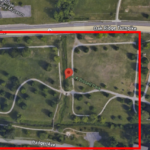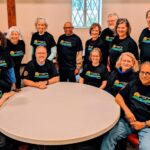The Oak Ridge Community Orchestra has a free concert Saturday featuring the music of three British composers from the 19th and 20th centuries, and one 21st century Oak Ridge composer—Nancy England.
England founded the ORCO 20 years ago, and she is still with the orchestra today, playing cello. The English composers featured at Saturday’s concert are Ralph Vaughan Williams, Gustav Holst, and Edward Elgar, a press release said.
The concert starts at 2 p.m. in the sanctuary of the First Baptist Church of Oak Ridge, at the corner of the Oak Ridge Turnpike and Lafayette Drive. “Admission is free, but modest donations at the door to support the orchestra’s routine operating expenses will be appreciated,” the release said.
It said England played in the Knoxville and Oak Ridge symphony orchestras before she started the ORCO. In 2002, she composed a musical comedy, “The Riviera Spy Caper,” and it will be performed Saturday.
Here is more submitted information on the composers featured at the concert:
Ralph Vaughan Williams (1872–1958) was a prolific and popular composer. In 1904, he became interested in identifying and preserving English folk songs. The “English Folk Song Suite” is exemplary for his incorporation of those folk songs into his own compositions. The suite was originally written for a military band in 1923. In 1924, it was arranged for full orchestra by his student, Gordon Jacob, and that is the version performed by the ORCO. To retain some of the military band flavor, two cornets are used in this concert instead of trumpets. The first of three movements includes variations on the songs, “Seventeen Come Sunday,” “Pretty Caroline,” and “Dives and Lazarus,” all in march rhythm. In the Intermezzo second movement, you will find the waltzes, “My Bonnie Boy,” and “Green Bushes.” The third movement, “Folk Songs from Somerset,” includes “Blow Away the Morning Dew,” “High Germany,” “The Trees So High,” and “John Barleycorn” to complete the suite in a high-energy, march style. The vivacity and lyrical styles in this suite demonstrate why the Vaughan Williams compositions are so popular.
Gustav Holst (1874–1934) was a close friend of Vaughan Williams. They frequently vetted each other’s compositions. During a 1912 visit to Spain, Holst became intensely interested in astrology, resulting in a compulsion to cast horoscopes for his friends during the rest of his life. That discovery of astrology led to composing “The Planets” in 1913. This intense orchestral suite has seven movements, describing the astrological significance of Mars, Venus, Mercury, Jupiter, Saturn, Uranus, and Neptune. For this concert, the ORCO is performing two of the more popular movements, “Mars, The Bringer of War,” and “Jupiter, The Bringer of Jollity.” As the title implies, Holst portrays the devastating conflict of war in the “Mars” movement with an unconventional five beats per measure, a meter that he pioneered. In contrast, “Jupiter” has a more upbeat and joyous sonority, as the title for that movement suggests. This is some of the most exciting music created by Gustav Holst. Consequently, he earned his fame with “The Planets.”
Sir Edward Elgar (1857–1934) composed “The Enigma Variations” from 1888–1889. Each movement casts the basic theme in a different style that depicts one of his many friends. The movement performed in this concert uses the Biblical name of a mighty hunter, Nimrod, to refer to Elgar’s friend, Augustus J. Jaeger, whose last name is the German noun for “hunter.” The extremely slow tempo of this piece focuses the orchestra on projecting the tonal beauty of the composition. Nimrod will leave you feeling a cathartic tranquility.
“The Riviera Spy Caper” by England is a fantasy that paints a scene of intrigue on the famous Riviera. Picture an elegant ball, attended by the movers and shakers associated with high government officials. The scene opens with a slow and relaxed waltz that belies the events to follow. Somewhere in the middle of the dance there is an assassination, marked by a gunshot, screams from the guests, and an intense ruckus. Apparently the assassin escapes on a horse because you can hear the hoof beats fading into the distance. Surprisingly, the ballroom recovers from the interruption, and continues the waltz. However, the adrenalin rush is inescapable, and the tempo accelerates to a rather frenetic conclusion, with nearly every section of the orchestra fighting one another for the theme, with the hero, the love interest and even the dog catcher competing for attention. You are sure to enjoy this entertaining fantasy.
Anyone wishing to regularly participate in the orchestra is encouraged to contact Personnel Manager Alex Wilson at orcopersonnelmanager@gmail.com. The orchestra welcomes musicians of all ages with at least four years of experience.
For more information about the ORCO, visit www.OakRidgeCommunityOrchestra.com.






Leave a Reply